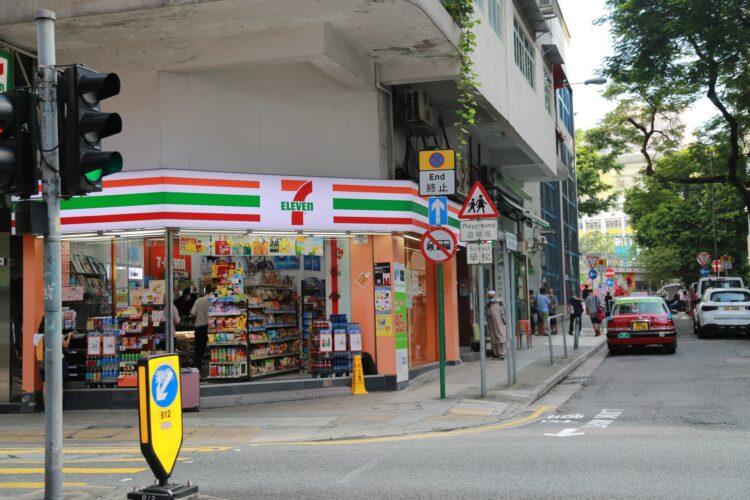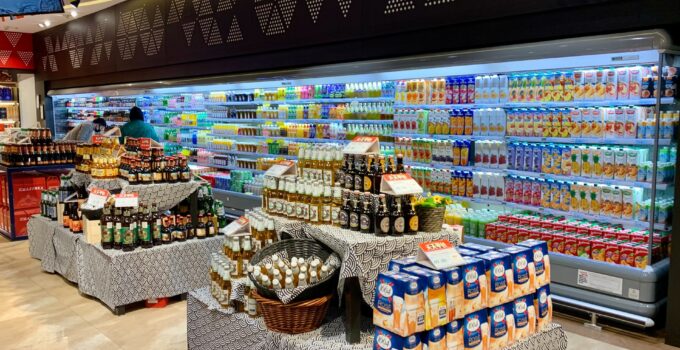Across the country, rural towns and metropolitan cities are filled with a variety of convenience stores (also known as c-stores). From family-owned business to large franchises, these stores are a convenient option for all types of shoppers. From toilet paper to cigarettes, buyers are able to secure the items that they need to function throughout their daily life. Typically, these stores are easy to access and have a large amount of inventory that is useful in many day to day situations. In addition, these stores offer beverage and grocery options. In smaller towns, these locations may function as a grocery store or a department store. If you are looking to start a business, a c-store may be the perfect way to leverage your network and start making a profit. In this article, we will share seven things to consider before opening a store.
Page Contents
1. Cater to the Target Audience

Source: unsplash.com
Although there are similarities in different shops, there are often many differences as well. Before opening your own business, it is important that you purchase inventory that caters to the target audience. In a rural town, a small store may be one of the only places to purchase certain grocery items. In a large city, it may be more important to have products other than groceries. Make sure that you have access to distributors and manufacturers that can supply the items that are in high demand. This specification includes the brand of products, price points, and product lines that are considered.
2. Have the Right Software Solutions
Without the right software and programming, you will likely run into problems quickly. Quality-designed software solutions allow business owners to conduct their sales more effectively and efficiently. One important software investment to consider is a convenience store POS system like those from Solution Scout. The right point of sale (POS) system will complete all consumer transactions. Retail POS providers are often able to store information about a large range of inventory items. Since c-stores often have a broad inventory with many offerings, this solution makes life easier for businesses. These systems should be easy to use and intuitive to learn since there is often a high turnover rate among the team at the average c-store.
3. Understand the Competition

Source: unsplash.com
Although items that are found at convenient stores are often in high demand, you must consider the competition that is in the market. Think strategically: are there parts of town that are lacking a one stop shop? Are there up-and-coming areas that need additional retailers? By looking at the layout of the town and highlighting the locations of the competition, you can determine where you can fill a gap in the community. If there are only small, family-owned brands in the town, try opening a large franchise that has access to more products. If the town only has franchise options, try opening a smaller store that supports local brands and provides more accessibility.
4. Handpick Your Employees
At a retail store, you have the opportunity to hire employees that represent the demographic of the community. Unfortunately, many small brands do not think they have the ability to retain employees for an extended period of time. Although many employment opportunities in the industry are short-lived, consider designing incentives that make employees more likely to stay around longer. A consistent team will help you develop loyal relationships in the community.
5. Stock Unique Products

Source: unsplash.com
Since convenient stores are small and profitable, many up-and-coming brands want to get their products onto the shelves. This allows many c-stores to step above the competition by offering unique products that are not sold elsewhere. From over the counter medications to hydration supplements, people soon are attracted to the company because they offer products that cannot be found elsewhere. In addition, the products being launched are often offered at a discounted rate to wholesale accounts. This opportunity gives convenient stores that ability to position their products in the way to maximize appeal and increase revenue.
6. Pick the Right Location
If your store is difficult to access, it will likely receive a minimal amount of foot traffic. Since most people want to pop in and out for a few products, it is not efficient for the location to be centered in the middle of nowhere. When choosing a location that works for your brand, there are a few options to consider. First, you may consider opening your doors at a facility that is directly off of a popular exit on a highly-trafficked interstate. The position will allow you to attract a customer base of travelers. If you do not want to have travelers visiting, your store should be located at one of the most popular streets in the downtown area. It could be beneficial to be located next to other chain businesses that are frequented among locals such as gas stations, fast food restaurants, or grocery retailers.
7. Define Your Goals

Source: unsplash.com
Every business has the ability to establish a brand that they are proud of. Define the goals you have as you grow your business. Do you want to give back to people in the community? Do you want to maintain an affordable price point so that more people have access to quality goods? Do you want to be a boutique store that highlights local business? There are so many ways that you can use your position in the community in a positive way. In order to achieve these goals, it is important to define measurable outcomes that will help you keep track of your overall success. As competition comes along, it is easy to forget the goals you set out to accomplish. By staying focused on your objectives, you will make a positive impact on the lives of your customers.
Summary
Convenience stores in the United States produce more than $650 billion in revenue annually. With this amount of profit, there is a huge potential to experience success by opening a c-store. By hiring the right employees and determining the right inventory selection, you can become a critical part of your community.





